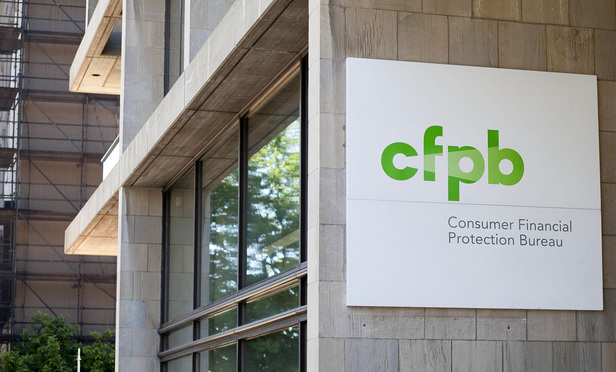Still, Earley and others said they expect CFPB work to eventually drop off. Earley anticipates spending more time representing clients before other federal regulators and Democratic state attorneys general who have pushed to defend the consumer bureau and who have promised a strong resistance to Trump-driven initiatives.
“Everyone’s waiting with bated breath to see who’s going to lead [the CFPB], what’s going to change,” said Earley, who worked at the agency from 2011 to 2014. “There’s lots of uncertainty.”
Trump hasn’t said much about the CFPB. But Congress—and the courts—haven’t been as quiet. Republican leaders in the House have pushed legislation to abolish the agency or turn it into a bipartisan commission. And a pending civil case in Washington could give the White House greater control over the tenure of the CFPB director, who now can only be removed for cause.
A week after Earley joined Reed Smith, a divided panel of the U.S. Court of Appeals for the D.C. Circuit delivered a gut check against the single-director power structure of the independent agency. The appeals court decision, which the full D.C. Circuit will now review, “gave people a bit of a pause with regard to the agency’s structure, but I don’t think really impacted people’s overall view of the agency,” said Wiggins, who worked at the CFPB for five years starting in 2011.
Financial practice group leaders said in interviews that CFPB attorneys are often so invested in the agency’s “mission” that they are not bent on spinning through Washington’s revolving door.
Cordray and other CFPB leaders, including enforcement chief Anthony Alexis—together, they oversee 117 enforcement lawyers—have been trying to keep spirits up. After the D.C. Circuit ruling, Cordray told agency staff in a weekly memo: “Keep yourselves on track just as before, and continue to focus, as always, on doing our work as best we can to deliver value in protecting and supporting consumers.”
The road ahead for firms
Ballard Spahr partner Alan Kaplinsky, who leads the firm’s consumer financial services group, said any downturn in CFPB work won’t automatically make the firm disinterested in hiring a lawyer from the agency.
“If someone’s at the CFPB and have the right background we’re looking for, the fact that they have experience at the CFPB is a plus,” he said. “But it’s not determinative.”
At BuckleySandler, a firm that boasts about its CFPB practice, managing partner Andrew Sandler said his firm is “always open” to considering lawyers out of the CFPB.

”I have several resumes on my desk right now from CFPB lawyers,” Sandler said. “So we look hard, and we hire based on talent. But it’s certainly a positive if a really talented lawyer has CFPB experience.”
Mayer Brown partner Larry Platt said the uncertainty around the CFPB would cool off hiring by firms that have not already established credentials in the consumer financial services sector.
“The big difference is the number of law firms that were trying to jump into the area. They didn’t have any bona fides in consumer credit law, so they were trying to hire it with CFPB people,” he said. “Those people are less likely to aggressively jump into the area because they may see fewer opportunities.”
Sandler has a rosy forecast for his firm’s CFPB workload. Any slowdown in agency enforcement, he said, might sift out firms less devoted to dealing with the agency, leaving more work for firms that built up consumer-finance teams.
“The nature of the work will be different, and with respect to the CFPB, perhaps there will be less work. But my experience is that when the overall amount of work at a particular agency goes down, the firms that do it best and have the most experience doing it, their market shares go up and they actually have as much if not more work with that agency,” Sandler said. “When an agency becomes less active, it eliminates the dabblers.”




